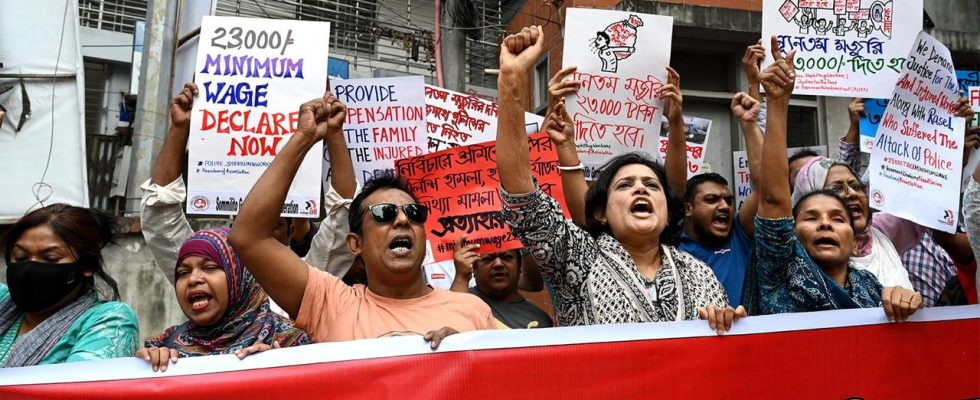Textile workers in Bangladesh should receive more money. After days of protests, the government decided to increase the minimum wage. Now factory owners are turning to buyers like H&M and Zara for help.
Almost 60 percent more: textile workers in Bangladesh will soon receive higher salaries. From December, they will receive at least 12,500 taka (106 euros) per month instead of the previous 8,000 taka (68 euros), Labor Minister Monnujan Sufian told reporters. The government set the new minimum salary in consultation with representatives of trade unions and factory owners. It is the first wage increase in five years.
Siddiqur Rahman, who was involved in the negotiations on behalf of factory owners, told Reuters this morning that the planned wage increase could be a “disaster” for the industry. Several factory owners have already turned to their customers, including the fashion group H&M, and asked for financial help in financing the wage increases.
Fashion brands want to support fair pay
Last month, several major fashion brands including Abercrombie & Fitch, Adidas, Gap, Hugo Boss and Levi Strauss wrote an open letter to the Prime Minister saying they wanted to “commit to implementing responsible purchasing practices.” Factory owners now hope that they will actually bear the rising costs through higher wages.
At the same time, the factory owners are constantly in tough negotiations with their customers. Abdus Salam Murshedy, managing director of the Envoy Group, which supplies Walmart and Zara, among others, reported this to the Reuters news agency. Afterwards, customers are often unwilling to bear higher costs and enforce low prices by threatening to change suppliers.
Factories should reopen
Bangladesh is the second largest clothing producer in the world after China. Almost four million people – mostly women – work in around 3,500 factories in the country. From there the textiles are exported primarily to Europe and the USA. In addition to fast fashion retailers such as Zara owner Inditex and Gap, customers of the factories in Bangladesh also include established brands such as Hugo Boss and Lululemon.
There were repeated protests during the recent negotiations between representatives of the unions and factory owners over a wage increase for textile workers. Workers blocked highways, clashed with police and set factories on fire. On Tuesday, police also used tear gas to disperse nearly 3,000 workers.
Labor Minister Monnujan Sufian called on workers to return to work after the wage increase was announced. And factory owners called on them to reopen their factories. Around 175 factories had stopped production.

